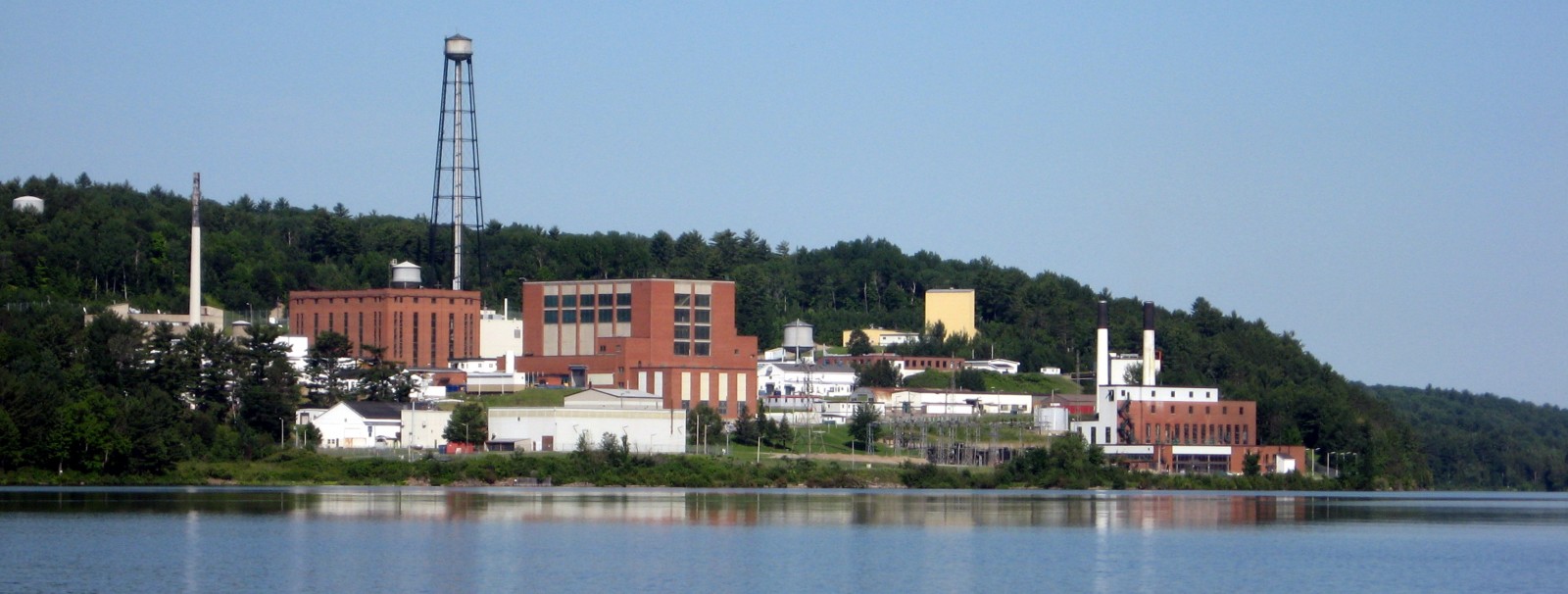
Chalk River Laboratories in Deep River, Ontario. Image: Padraic Ryan
By Fraser Byers and Zara Gounden, Circle of Blue – June 27th, 2023
The proposed Near Surface Disposal Facility (NSDF) to contain low-level radioactive waste near the Ottawa River has encountered mounting opposition from Algonquin First Nations, supported by more than 140 municipalities in Quebec and Ontario. Opponents say the waste facility will affect local watersheds, ecosystems, and national reconciliation efforts in Canada.
The NSDF, if built, will be operated by Canadian Nuclear Laboratories (CNL) at their Chalk River Laboratories on Algonquin Anishinaabe lands. The site would encompass 16 hectares (nearly 40 acres) and store up to 1 million cubic meters of waste. The radioactive material was produced in part by the research site’s nuclear reactor prior to it being decommissioned in 2018.
In CNL’s Environmental Impact Statement, the government-owned corporation said the new NSDF would “enable the remediation of historically contaminated lands and legacy waste management areas, as well as the decommissioning of outdated infrastructure to facilitate the Chalk River Laboratories site revitalization.”
The location for the NSDF was selected from 15 potential sites. The NSDF would be placed alongside a bedrock ridge that naturally directs water away from the Ottawa River and provides a solid foundation for radioactive containment. Chalk River Laboratories explained that they had already conducted comprehensive research on the watershed and creek and would be better positioned to mitigate damaging environmental effects. Such research included studies on groundwater flow and the migration of contaminants.
As a signatory of United Nations Declaration on the Rights of Indigenous Peoples (UNDRIP), Canada is committed to Article 29, which mandates that “States shall take effective measures to ensure that no storage or disposal of hazardous materials shall take place in the lands or territories of indigenous peoples without their free, prior and informed consent.” Granting approval for the NSDF construction would not only violate this principle but also undermine reconciliation efforts in Canada.
The Canadian Nuclear Safety Commission (CNSC) recently conducted a two-part public hearing to address CNL’s request for modifications to their operating license for the Chalk River Laboratories. Indigenous leaders, neighboring communities, and members of Parliament have testified before the CNSC, urging the commission to deny project permission. The Kebaowek and the Kitigan Zibi Anishinabeg Algonquin First Nations, they argue, have been denied prior consultation and project planning, as well as limited access to comprehensive information, insufficient time for research, and scarce resources.
The Canadian Coalition for Nuclear Responsibility also expressed their concern to the CNSC and formally recommended that “the Commission order a restart to the entire environmental assessment process” due to CNLs Environmental Impact Report being a “profoundly flawed document.”
Zara is a reporting intern at Circle of Blue. She is a Davis Scholar in her third year at New York University London, majoring in Global Liberal Studies with a concentration in Politics, Rights, and Development.




